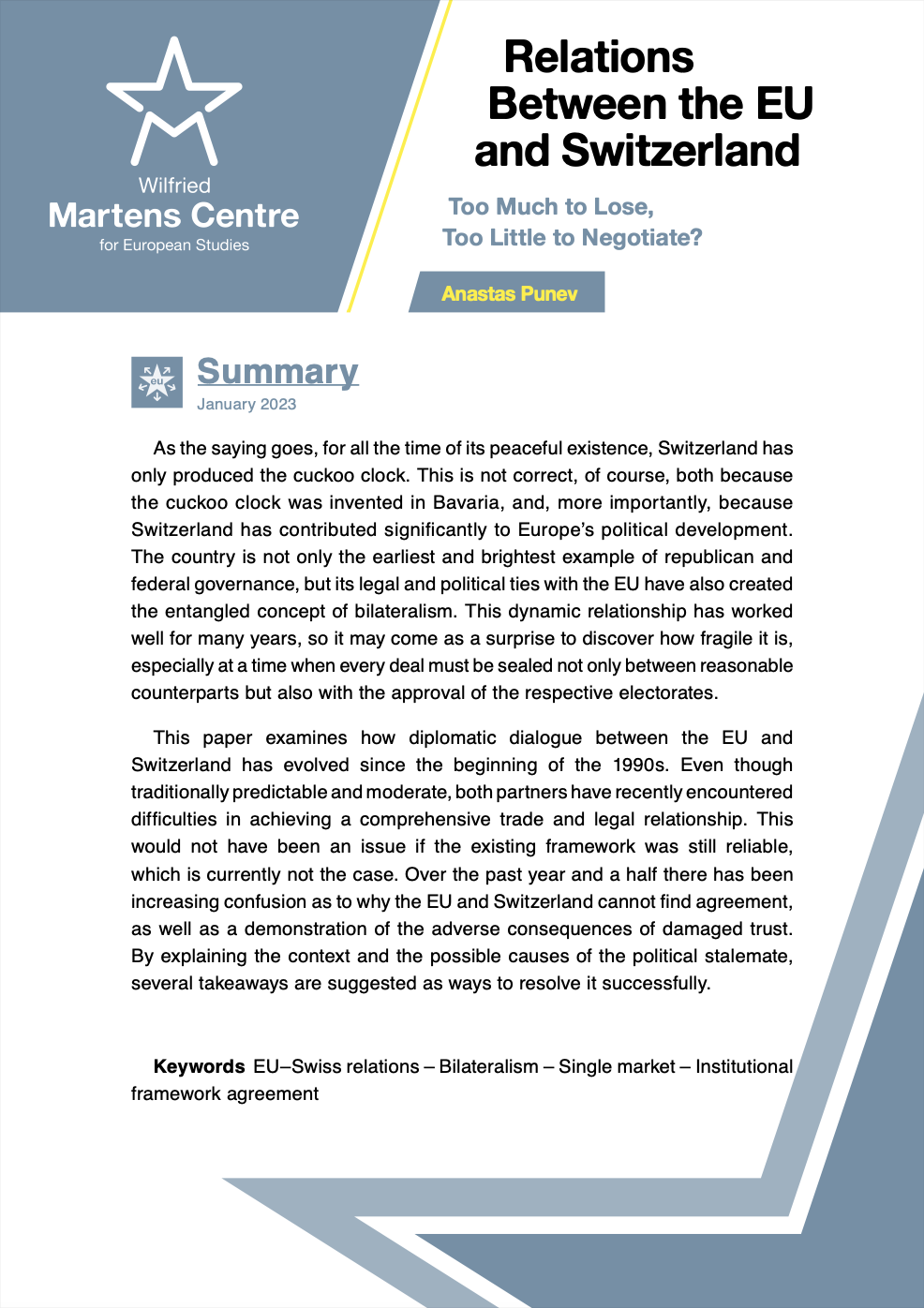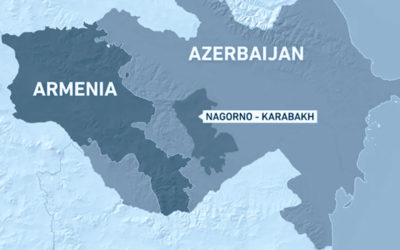Related publications
-

The 7Ds
The 7Ds – Defence Extended
-

Other
Ambitions and Limits: The Deepening Security Dialogue Between Japan and the European Union
-
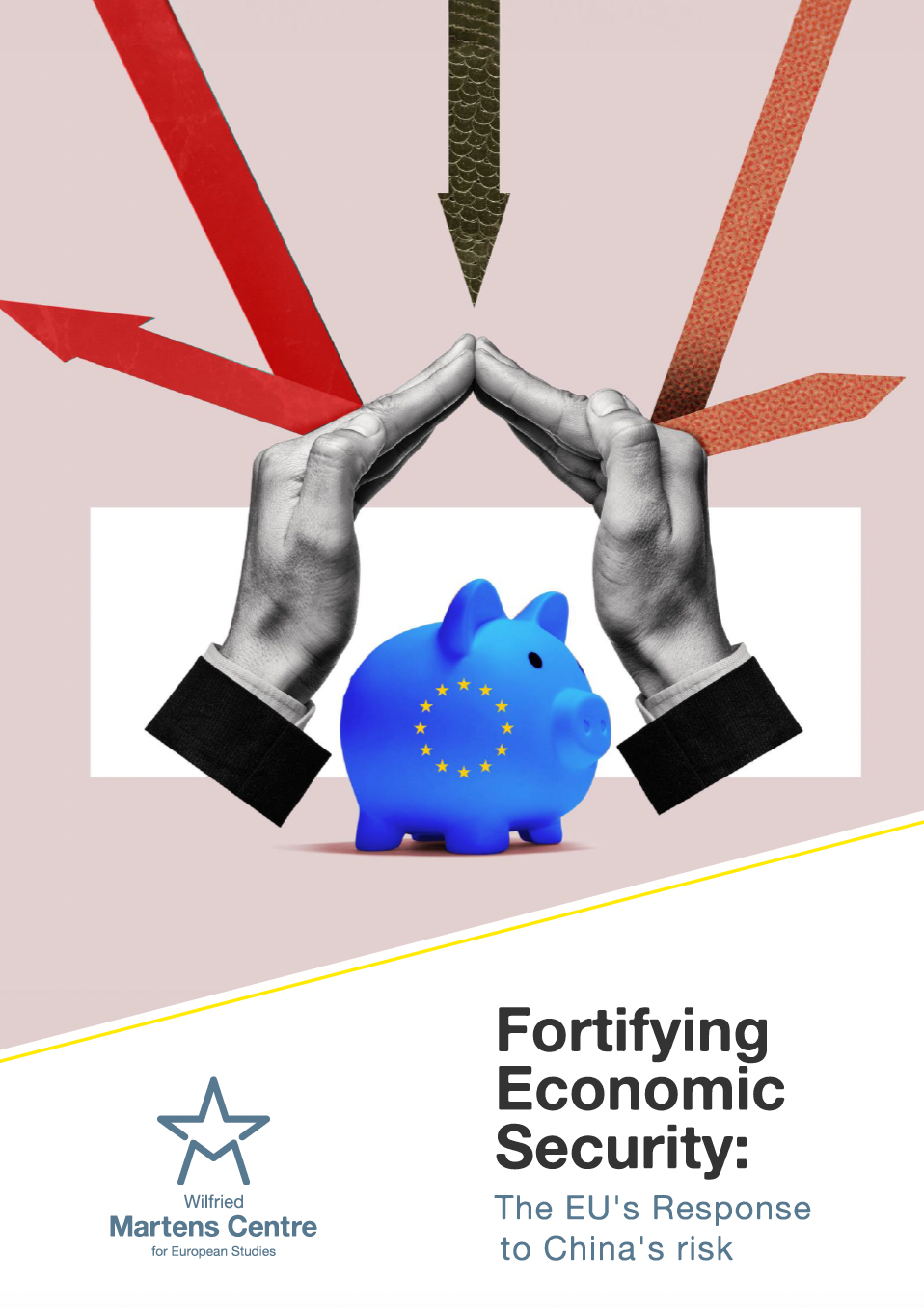
Other
Fortifying Economic Security: The EU’s Response to China’s Risk
-
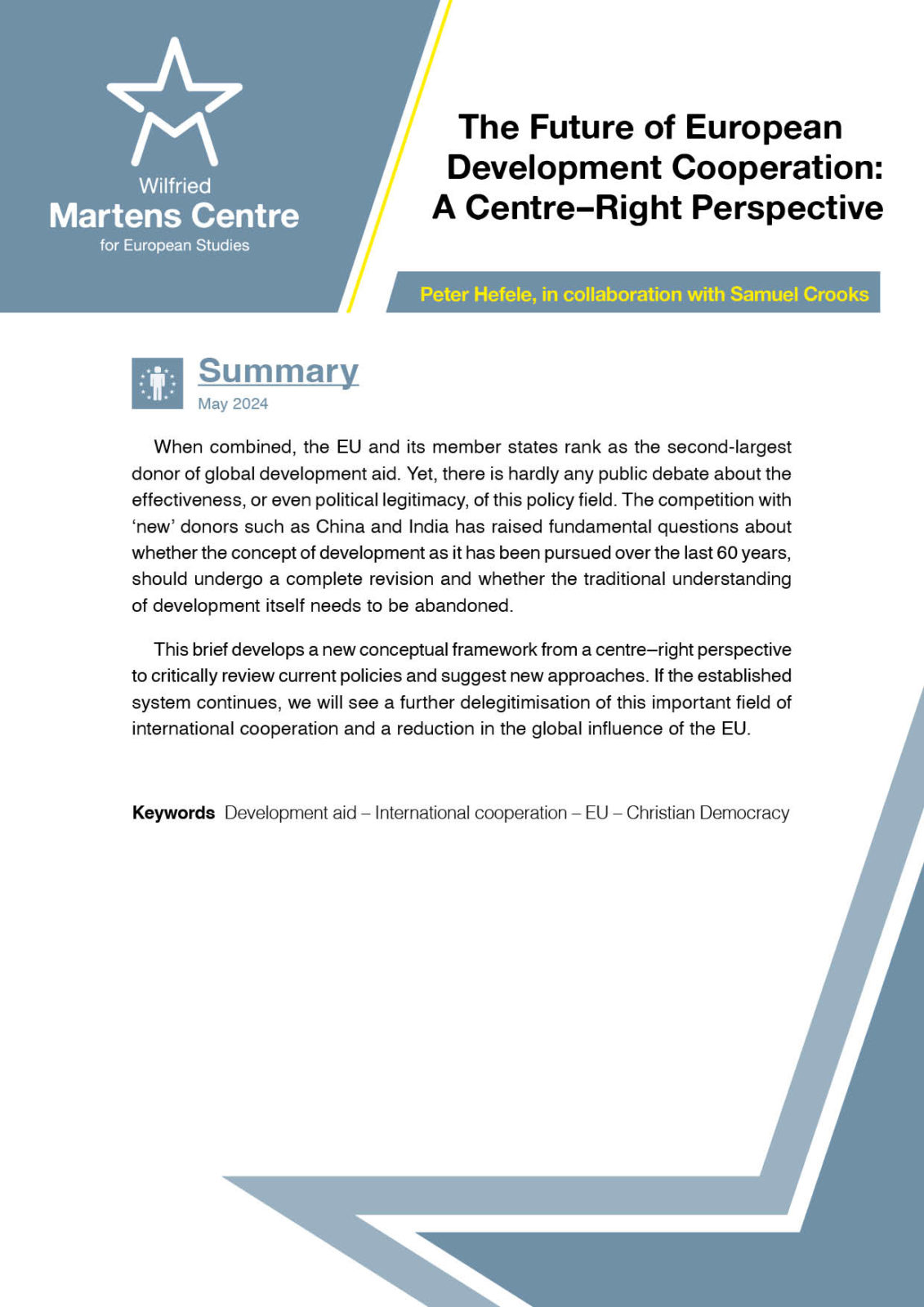
Policy Briefs
The Future of European Development Cooperation: A Centre–Right Perspective
-

Other
EU-Taiwan Ties in a New Reality: Time for an Upgrade
-

The 7Ds
The 7Ds – Defence in Depth
-
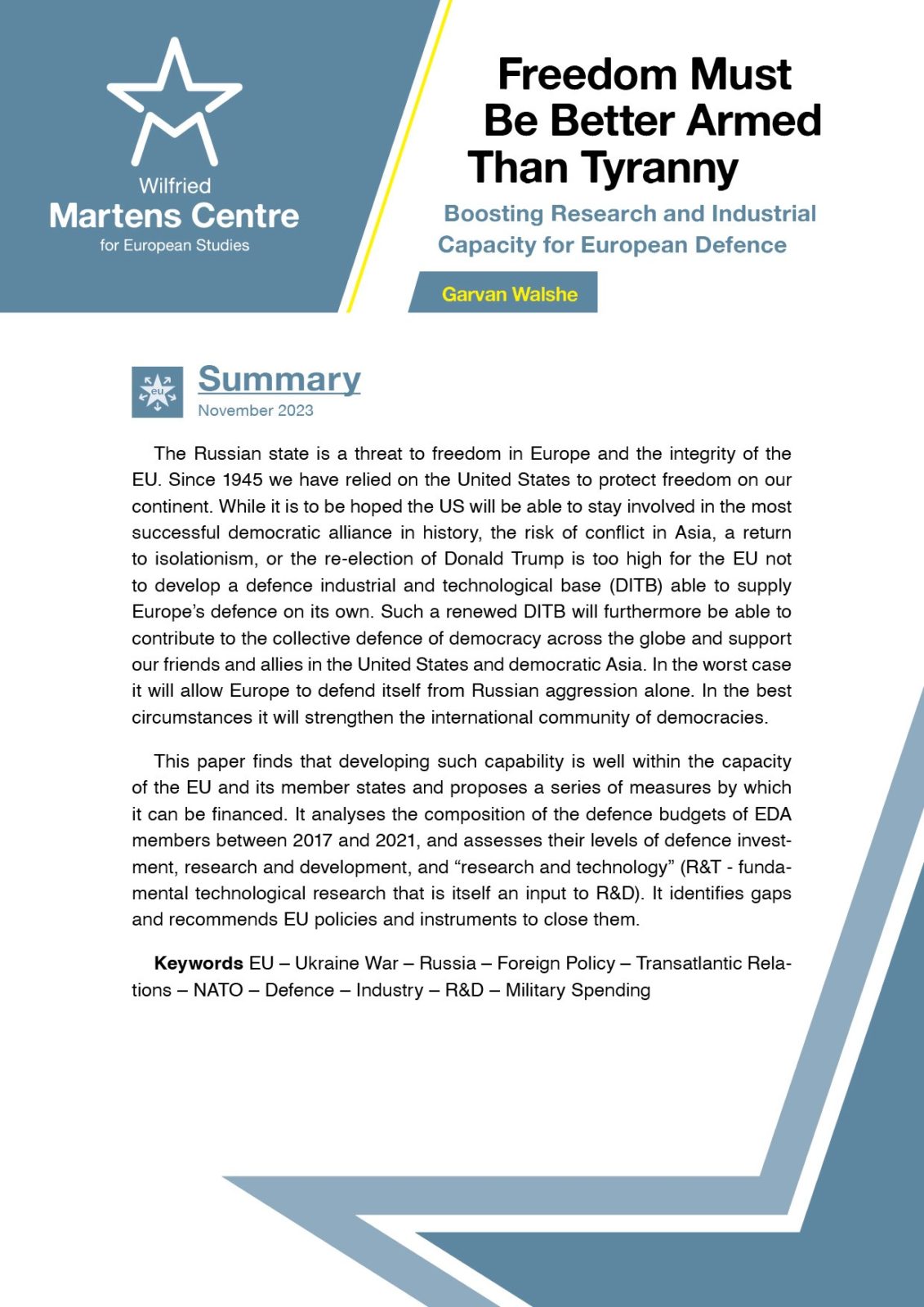
Policy Briefs
Freedom Must Be Better Armed Than Tyranny: Boosting Research and Industrial Capacity for European Defence
-
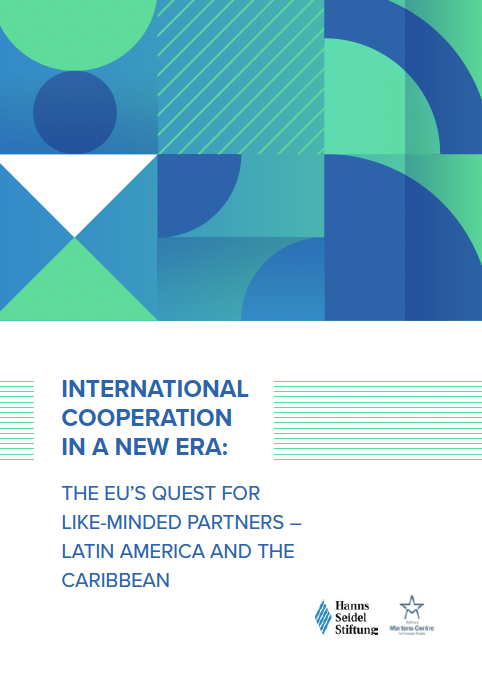
Collaborative
International Cooperation in a New Era: the EU’s Quest for Like-Minded Partners – Latin American and Caribbean


